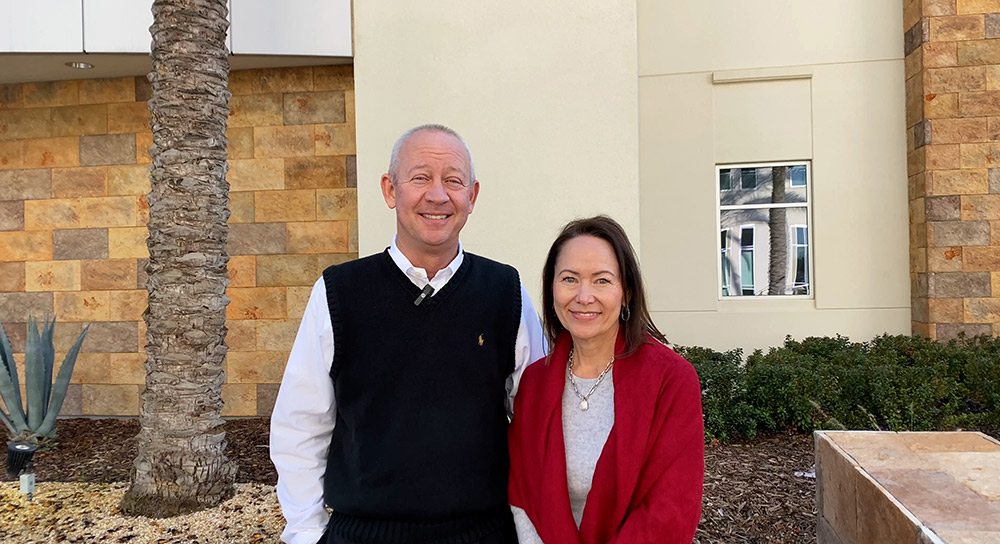 |
| Nurse Practitioner Kathryn Venya listens to Bonifacio Martinez’s heart while palliative care nurse Yang Moua talks with him about his care plan and wishes for other kinds of treatment while he’s at Community Regional Medical Center. |
It’s exactly what the mother and daughter will need as Diener continues her cancer treatments. Shelly Rompal found the idea of the service so valuable that she and her husband Larry Rompal, donated $100,000 to palliative care at Community Regional Medical Center to help expand the service for others.
“This is near and dear to my heart,” said Rompal. “Palliative care finds out what the patient wants and helps with getting family on board. I remember the day I took my mom to her first radiation appointment. She had never talked to a social worker before but it came out to the social worker that she worried about my dad and leaving me with the burden of his care. That was something she wasn’t talking to me about.”
The palliative care team – which includes specialized nurses, nurse practitioner, chaplain, social workers, medical residents and the medical director – works with patients to create individualized care plans to help relieve symptoms such as shortness of breath, constipation, depression, fatigue, loss of appetite, nausea, pain and trouble sleeping, plus the stress of a serious illness. The team also helps with emotional support, decision making, planning for the future and connecting to local resources.
Working with terminal patients is much like walking a child to school on their first day, says social worker Cynthia Farley. “I can hold his hand, assuage his fears and help him across the street. Ultimately I have to let go so that he can move forward. But I know that I have helped get him there safely, knowing he is cared for and loved.”
She said that “walking with a patient” often means helping them reunite with estranged family members. “Suffering at the end of life is the ‘great equalizer’ and it can be a time of forgiveness and reconciliation, a time for peace,” Farley describes. “I have personally witnessed and worked toward this (reconciliation) on several occasions — it is a marvelous thing!”
Yang Moua, a palliative care nurse at Community Regional, says she’s seen “lives changed by the support and education” provided by palliative care. “In so many ways, we are able to put these patients back in the captain's seat and allow them to take charge of this ship, to which is their medical care.”
Feeling in charge and truly listened to was exactly the medicine Diener and Rompal needed. Rompal would love to see palliative care extended far beyond the hospital and clinical areas. And she also hopes their gift will help educate and train other clinicians in palliative care models.
In the past year Community Regional’s palliative care team has had 1,500 consultations, mostly in a hospital setting. The team also has a once-a-week outpatient clinic where they see patients for pain management. The plan is to expand this service. Although there is minimal reimbursement for the service, recent medical studies show that the earlier terminal patients receive palliative care, the better they fare with significantly better quality of life, shorter hospital stays and similar survival rates to those who do not receive palliative care.
“I am so excited to see what is in store for the future of this team and am honored to continue educating and advocating for these patients,” Moua said of the gift. Farley also thanked the Rompals for their generosity: “Your gift is a heartwarming acknowledgement that our work matters.”
Erin Kennedy reported this story. Reach her at MedWatchToday@communitymedical.org





.jpg)